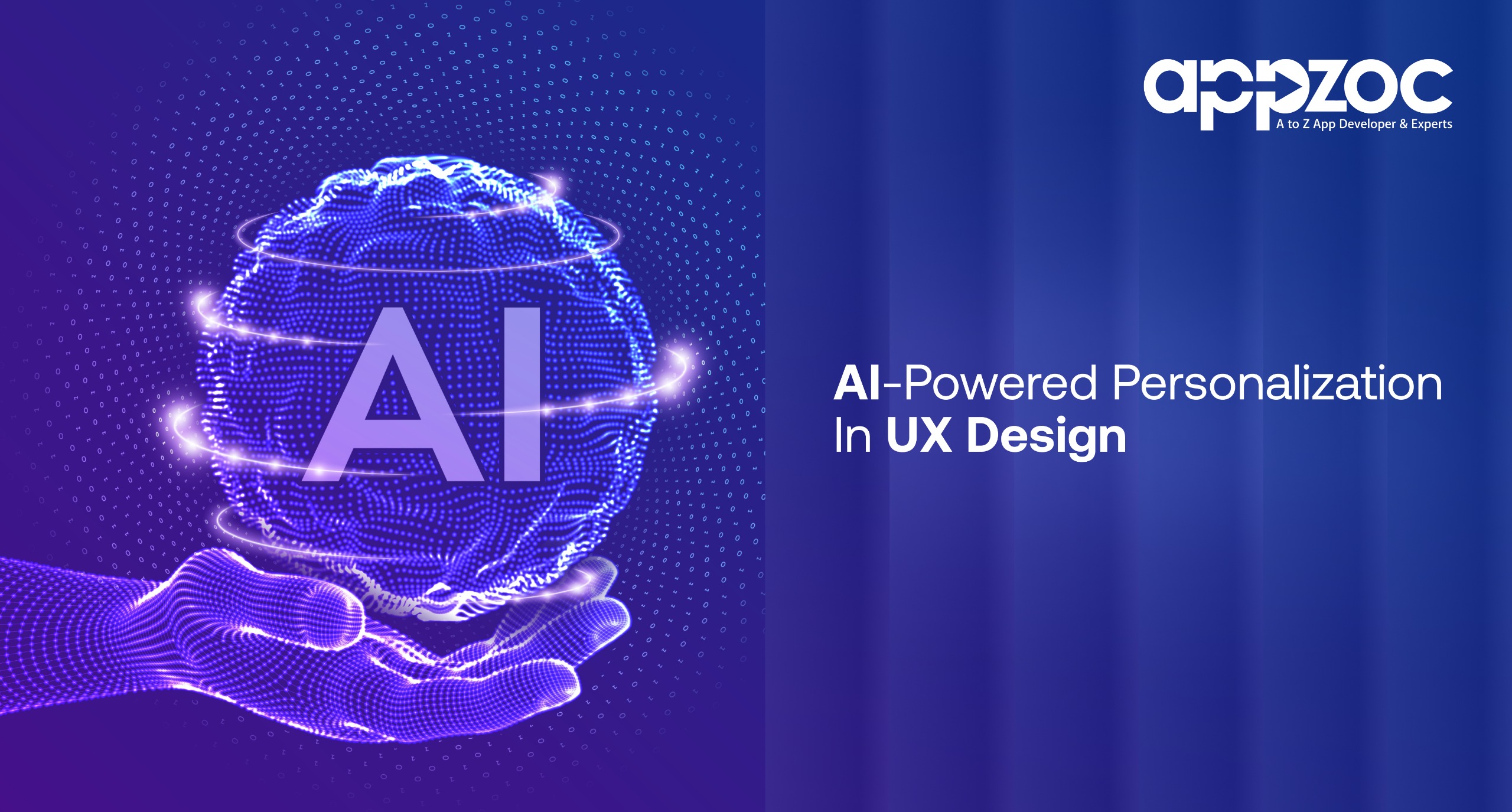
Flutter
Make the most of this cutting-edge technology by developing apps quickly! Our Flutter solutions have amazing features that can be used to create sleek, high-performance apps that can scale seamlessly across platforms.

Imagine opening an app that instantly understands your mood, suggests exactly what you’re looking for, and adapts its interface as if it’s reading your mind. That’s not futuristic fantasy anymore, it’s AI-powered personalization in action.
In the world of mobile UX design, AI is the ultimate paradigm shift, taking static interfaces and turning them into living, learning experiences that change with every tap. Businesses that want to create smarter, more intuitive apps need to become proficient with AI-driven personalization or risk falling behind – because it’s not just a nice-to-have anymore; it’s the definition of excellence.
User expectations are changing rapidly. “Customers today do not just want a functional app, they expect an experiential one with personalised experiences that are responsive to their behaviour. User retention and brand loyalty are both dramatically improved through personalization. That technology is AI-driven UX.
At APPZOC, we’ve witnessed how AI can change users’ interactions with mobile. AI not only allows businesses to serve up interfaces that seem intuitive, flexible and highly personalized to each user by analysing user behaviour, preferences and real-time actions.
Personalization directly affects engagement. In the case where an app knows what a user will benefit from, it reduces friction and drives satisfaction. A shopping app, for instance, that showcases products tailored to browsing behavior of the user will lead to increased conversions. As one of the Best mobile application development Kerala firms, APPZOC helps businesses design AI-driven mobile apps that engage users meaningfully.
Machine learning algorithms analyze user behavior patterns to predict future actions. It makes it possible for apps to offer suggestions, content, or features in time.
NLP enables us to talk or write naturally, in speech or text. Bots and voice assistants make complex tasks easy, driving ease of use and usage.
AI-Generated computer vision customizes visuals. It can be used, for instance, to add interactivity to virtual try-ons of beauty and retail apps or make dynamic product images more interactive.
This approach allows us to continually improve users’ experience as per users’ feedback. The system dynamically tests and refines elements of the interface for increased engagement over time.
Start with a short-term goal, e.g., retention, session time, or conversion. It can decide which personalization tactics will drive measurable results.
Strong personalization requires good data done right. We help you discover what really matters to your design decisions using behavioral analytics, clickstream data and demographics.
The integration should support the existing processes, not require an entirely new order of work. Partnering with APPZOC, the Native App Development company India, we ensure AI integration is optimized for both iOS and Android, making them standardised across devices.
AI personalization is iterative. The UX should change with insights. And when you work with adaptive layouts and modular components, the way is always paved with gold to make corrections to new data or feedback that we have received.
Constant A/B testing and model retraining are relevant. AI systems have much to learn about users, and as they do so, they can better comprehend a user’s intent and provide more refined user experiences.
What makes AI-driven UX work is its ability to show measurable results. Performance can be judged in terms such as user retention rate, average session time, conversion rate and customer lifetime value (CLV).
A personalized app is usually more engaging and loyal. By monitoring behavior metrics across time, companies can assess how AI-capable designs directly impact user satisfaction.
In addition, qualitative feedback from surveys or in-app interactions provides a further dimension. It indicates personalization is working well if the two types of data meet.
At APPZOC, we, as a dedicated iOS app development company Bangalore, continuously leverage AI to personalize user experiences for regional audiences and deliver measurable business outcomes. We include AI while upholding the best-in-class data privacy. Ethical personalization simply helps users to feel appreciated—not watched, building long-term brand trust.
We’re experts in developing smart mobile apps that create impactful user experiences that both engage users and help our clients succeed. As a leading Native App Development company in India, we easily elevate every interaction with casual chat.
Whether you are working on your next big idea or upgrading your app? Our Kerala- and Bangalore-based experts are ready to develop and deliver the app you need to succeed! Discover how AI can enhance your mobile journey with APPZOC